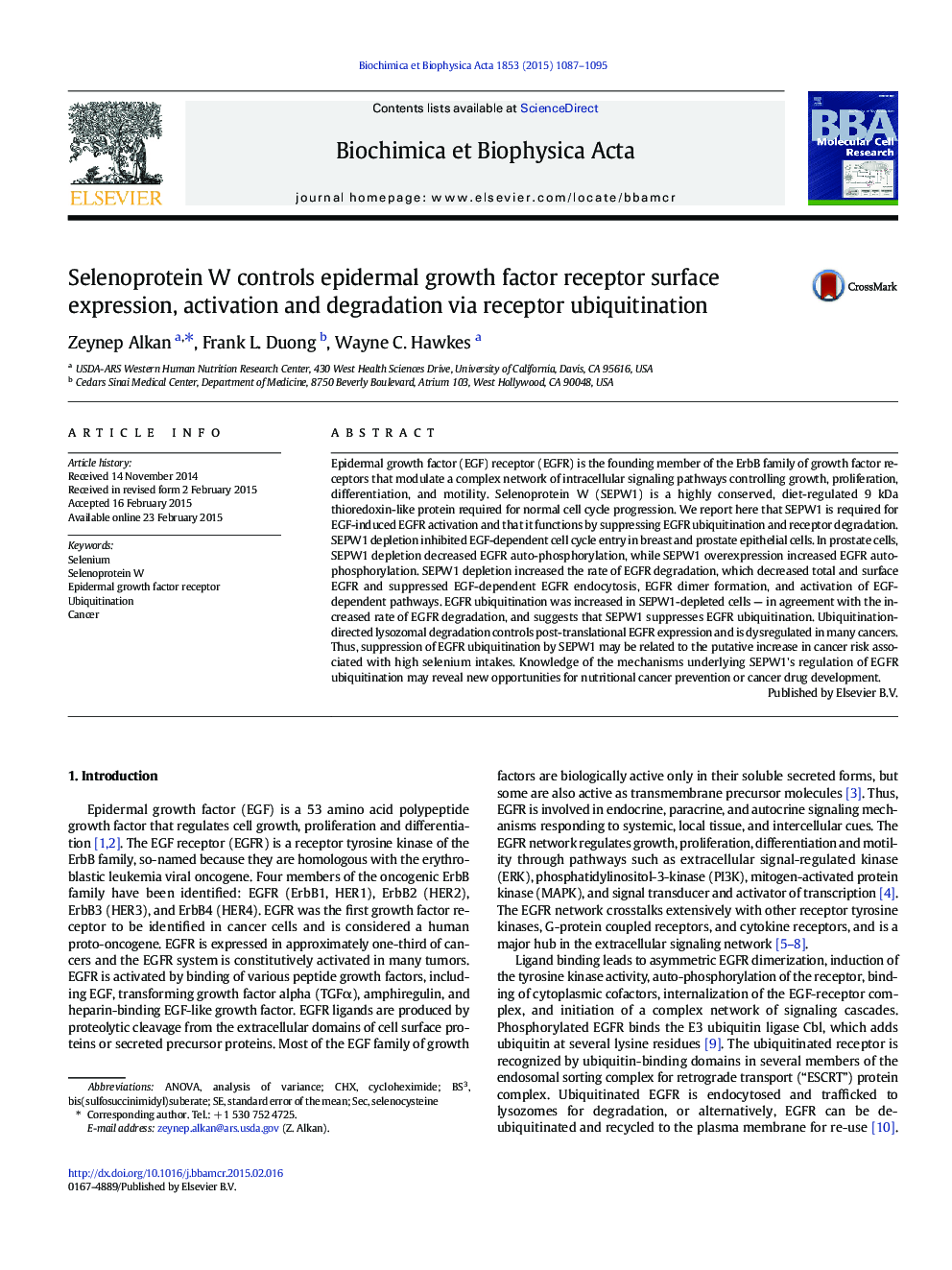| Article ID | Journal | Published Year | Pages | File Type |
|---|---|---|---|---|
| 1950499 | Biochimica et Biophysica Acta (BBA) - Molecular Cell Research | 2015 | 9 Pages |
•SEPW1 is required for EGFR signaling, and activation of downstream pathways.•EGF-induced EGFR phosphorylation is modulated by SEPW1 expression.•Surface EGFR expression, and EGF endocytosis are attenuated with SEPW1 silencing.•SEPW1 decreases EGFR ubiquitination, and inhibits EGFR degradation.
Epidermal growth factor (EGF) receptor (EGFR) is the founding member of the ErbB family of growth factor receptors that modulate a complex network of intracellular signaling pathways controlling growth, proliferation, differentiation, and motility. Selenoprotein W (SEPW1) is a highly conserved, diet-regulated 9 kDa thioredoxin-like protein required for normal cell cycle progression. We report here that SEPW1 is required for EGF-induced EGFR activation and that it functions by suppressing EGFR ubiquitination and receptor degradation. SEPW1 depletion inhibited EGF-dependent cell cycle entry in breast and prostate epithelial cells. In prostate cells, SEPW1 depletion decreased EGFR auto-phosphorylation, while SEPW1 overexpression increased EGFR auto-phosphorylation. SEPW1 depletion increased the rate of EGFR degradation, which decreased total and surface EGFR and suppressed EGF-dependent EGFR endocytosis, EGFR dimer formation, and activation of EGF-dependent pathways. EGFR ubiquitination was increased in SEPW1-depleted cells — in agreement with the increased rate of EGFR degradation, and suggests that SEPW1 suppresses EGFR ubiquitination. Ubiquitination-directed lysozomal degradation controls post-translational EGFR expression and is dysregulated in many cancers. Thus, suppression of EGFR ubiquitination by SEPW1 may be related to the putative increase in cancer risk associated with high selenium intakes. Knowledge of the mechanisms underlying SEPW1's regulation of EGFR ubiquitination may reveal new opportunities for nutritional cancer prevention or cancer drug development.
